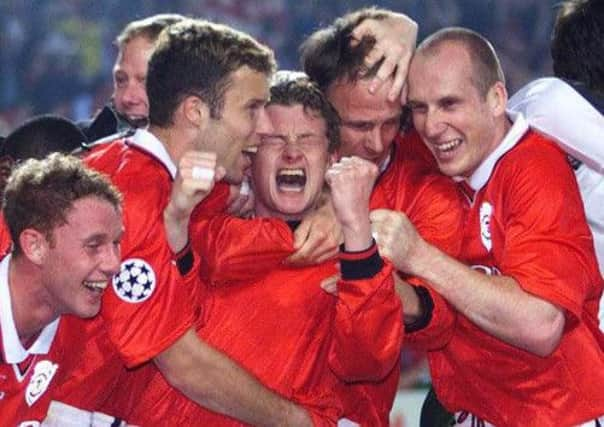Alex Ferguson wins ‘best ever decision’ vote


After Sky Sports experts delved into sporting history to pick out the 50 game-changing moments, a public vote determined that Sir Alex Ferguson’s decision to introduce Teddy Sheringham and Ole Gunnar Solskjaer into the 1999 Champions League final edged out Barcelona’s willingness to pay the medical fees of a then 11-year-old Lionel Messi.
Schmeichel has intimate knowledge of events surrounding the arrival of Sheringham and Solskjaer, because he was part of the team that ended up celebrating one of the greatest Champions League triumphs as both substitutes scored in injury time to turn the final with Bayern Munich on its head. But Schmeichel wonders if history would have been the same had Bayern coach Ottmar Hitzfeld not elected to replace key men Lothar Matthaus and Mario Basler in an effort to run down the clock.
Advertisement
Hide AdAdvertisement
Hide Ad“When you talk about decisions made in that game, I think Ottmar Hitzfeld will take to his grave the decision to take Basler and Matthaus off,” said Schmeichel. “They were running the game for Bayern Munich.
“As soon as he did that, we got more initiative and built more pressure. As good a decision as Sir Alex Ferguson’s was, that one was bad.”
And, as Schmeichel observes, it is not just about making the correct call at the right time, the move must also be decisive.
“I was at a talk recently by Sir Alex when he said he was faced with so many decisions throughout a game that if he took just one of them home, he might lose sleep,” said the former Denmark star. “When he faced a problem, he made a decision on instinct and stuck with it. He got some wrong but the majority were good.”
The only non-footballing decisions to make the top ten were Nelson Mandela’s to wear a Springbok shirt for South Africa’s World Cup triumph over New Zealand in 1995, plus Muhammed Ali’s “Rope-a-Dope” tactics during his world heavyweight title fight with George Foreman.
Rafael Benitez’s introduction of Dietmar Hamman into the famous 2005 Champions League final is named at number three, although as Schmeichel points out: “That might have been good, but what about the decision to leave him out in the first place?”
His personal favourite only makes number ten in the list. “My favourite was the change to three points for a win from two in 1981,” said Schmeichel. “That was Jimmy Hill’s idea. It was a decision that changed football.
“It made people go for a win rather than play for a draw. You get more reward for winning matches, so the game changed, even in places like Italy.
Advertisement
Hide AdAdvertisement
Hide Ad“Some people say it should be four points, or an additional point for winning in a penalty shoot-out. It is perfect as it is.”
• Peter Schmeichel was supporting Sky Sports’ campaign to find the best decision in sport. To see the winning decisions as voted by the public go to skysports.com/decisions